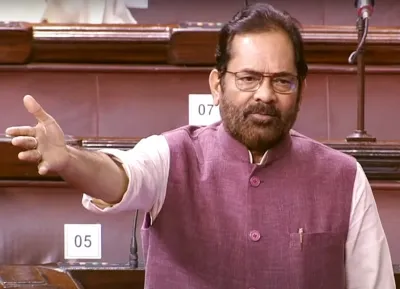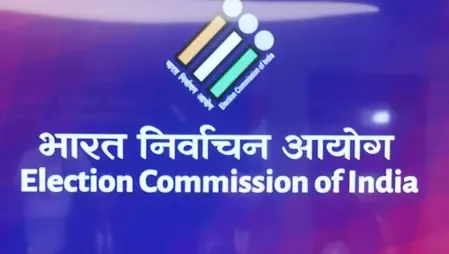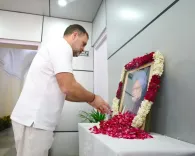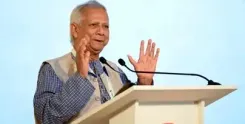Is Rijiju vs Owaisi a Clash Over Minority Rights?

Synopsis
Key Takeaways
- Rijiju claims minorities receive more benefits in India.
- Owaisi emphasizes these are fundamental rights.
- BJP leaders criticize Owaisi's divisive rhetoric.
- The debate reflects broader political tensions.
- Polarisation politics remains a key concern.
New Delhi, July 8 (NationPress) A heated exchange has unfolded between Union Minister Kiren Rijiju and AIMIM leader Asaduddin Owaisi regarding the subject of minority rights. The verbal clash commenced when Rijiju, during an interview with a prominent national publication, claimed that “India is the only nation where minorities enjoy greater benefits and protections compared to the majority community.”
By sharing excerpts from the interview on X, Rijiju reignited the ongoing debate surrounding minority appeasement versus equality.
In a sharp rebuttal, Owaisi remarked, “These are rights, not charity,” accusing the BJP of framing constitutional protections as mere handouts.
Responding vigorously to Owaisi’s comments, BJP National General Secretary Tarun Chugh stated to IANS on Tuesday, “Owaisi’s remarks are divisive and inflammatory. Under Prime Minister Modi, the past eleven years have been centered around ‘Sabka Saath, Sabka Vikas, Sabka Vishwas, Sabka Prayas.’ Yet, individuals like Owaisi view everything through a communal lens, engaging in nothing but vote bank politics.”
Former Union Minister Mukhtar Abbas Naqvi voiced similar opinions.
While addressing IANS, he commented, “In the eleven years of PM Modi’s governance, polarisation politics has been diminished. Government programs have reached every deserving Indian without bias. However, some leaders instigate division during election periods to maintain political relevance.”
He further remarked, “Previous administrations exploited minorities solely for votes without contributing to their advancement. It is crucial that such political maneuvering is eliminated from India. These individuals thrive on divisive narratives.”
Chugh also criticized what he referred to as ‘selective secularism’ practiced by certain political factions, asserting, “The Opposition aims to prevent unity among the populace. They flourish by sowing social discord and confusion, akin to what is transpiring in Bihar regarding the Special Intensive Revision. Rather than encouraging citizens to vote, they are instigating doubt among voters, ultimately dissuading them from participating.”
Meanwhile, Congress MP Imran Masood sparked a new controversy by asserting that the Waqf Act would be abolished within an hour if the Congress regains power at the Centre.
In a sarcastic retort, Naqvi remarked, “It will require at least 100 years for the Congress to return to power. They can continue dreaming.”










